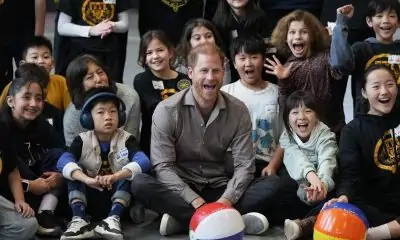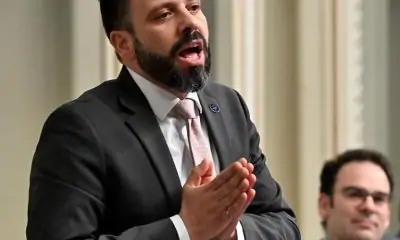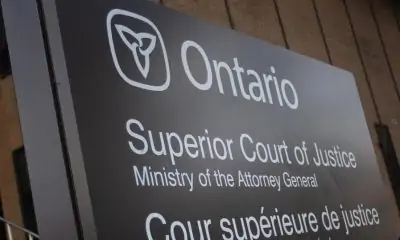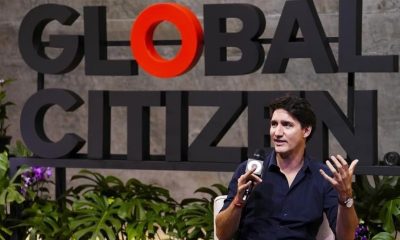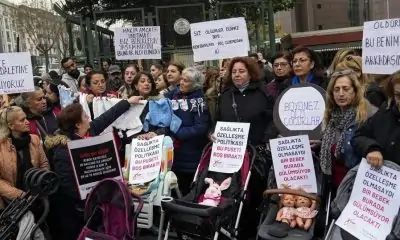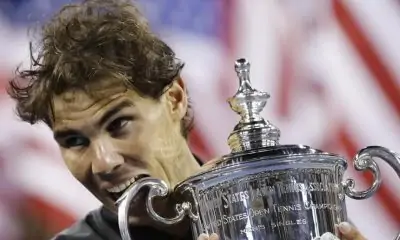Anna Nemtsova is a Daily Beast correspondent and a contributing writer for the Atlantic.
Politics
A disastrous strategic failure has Ukrainians discussing politics again

Since Russia launched its full-scale invasion in February of last year, Ukrainians have buried their political disputes in the name of national unity. But some are starting to believe that the tacit ban on discussion of controversial topics has outlived its usefulness.
After all, Ukraine is fighting this war to maintain not only its statehood but also its democracy. And surely the freedom to ask uncomfortable questions of those in power is one of the core components of any democracy worthy of the name.
On July 21, former Ukrainian president Petro Poroshenko made a public announcement strikingly reminiscent of the start of an election campaign. Standing against a backdrop of military trucks and drones, he drew attention to legislation he had proposed in 2021 that called for funding to prepare, in case of war, for the destruction of the Chonhar bridge — a crucial communications link between mainland Ukraine and the Russian-occupied Crimean Peninsula. The bill never made it through parliament. “We paid a very high price for being ignored,” he declared.
Poroshenko’s statement was a swipe at his longtime rival Volodymyr Zelensky, who still enjoys sky-high approval ratings as president thanks to his strong wartime leadership. Ukrainians have generally accepted that the war necessitated restrictions to the country’s democratic institutions. Martial law, which was declared immediately after the Russian invasion, has constrained free speech and civil liberties. Yet now Poroshenko is testing those limits.
At the heart of the issue is the government’s potential responsibility for a disastrous strategic failure. In the opening days of the invasion, the Russian army quickly occupied a large chunk of the southern Ukrainian region of Kherson. They did it by rolling across the Chonhar bridge — which the Ukrainian army was supposed to have destroyed but did not.
Why it failed to do so continues to bedevil Ukraine’s politicians, military and journalists — not to mention a team of government investigators that has been working the case ever since.
Late last year, the head of Ukraine’s domestic security service, the SBU, confirmed the existence of an investigation but declined to comment on its progress — and there has been silence ever since. Some leading analysts and politicians, including former Zelensky adviser Oleksiy Arestovych, believe that the Ukrainian Supreme Court — whose head was arrested in a massive bribery scandal in May — should rule that the results of the investigation must be kept secret for national security reasons.
That will be a tough sell with Ukraine’s vibrant civil society. Today Kyiv is waging a bloody counteroffensive against superior enemy forces to recapture the very same territory it lost after the Russians crossed the Chonhar Strait, and casualties are mounting. So questions about the case persist — and not least because of institutional rivalries that might shape the country’s political future.
Was the failure to blow up the Chonhar bridge the fault of the SBU, which was run at the time by a man who was a childhood friend of Zelensky? (He has since been fired.) Or was it a case of pure negligence, the fault of the military, headed then and now by Gen. Valery Zaluzhny?
Zaluzhny, who is immensely popular and has no ties to any political party, is widely seen as Zelensky’s most serious rival. In June, a Ukrainian news agency reported that the general “has not made up his mind” about whether he will enter politics. The country treated Zaluzhny’s 50th birthday last month as an occasion to celebrate a national hero. Ukrainian journalist Oleksandr Martynenko described Zelensky and Zaluzhny to me as “two charismatic, emotional and extremely popular leaders,” and noted that the current president is rumored to view the general as a competitor.
The declaration of martial law suspended elections. But a presidential poll is scheduled for next March (assuming that the war is over by then).
In the meantime, the mystery around the failure to blow up the bridge just won’t go away. Last month, a leading newspaper interviewed Ivan Sestryvatovsky, a 48-year-old marine whose job was to blow up the Chonhar bridge as the invasion began and who’s convinced the operation was sabotaged. He claimed that the bridge was mined at least a week and a half before the invasion — but nothing happened when he pressed the detonator. Arestovych pins the blame for the failure on betrayal by an SBU officer, allegedly turned by the Russians, who was arrested in March. “It’s a painful and politicized subject,” Arestovych told me recently. He doesn’t think the results of the investigation should be released as long as the war is going on.
But lawyer Masi Nayyem, who lost an eye to a Russian mine during his service as an officer in the army, doesn’t agree. “Our civil society is in charge of our democracy,” Nayyem said. “Not the army, not the presidential administration. Civil society needs to know the truth.” He acknowledged that Poroshenko and other members of the opposition might be trying to exploit the issue for political gain. Even so, he said, investigating possible treason (and fighting corruption) must continue despite the war. “We have to prevent future mistakes,” he said, even if the process is painful.
And that is the deeper story here, and in its way it is a positive one. Every government is subject to error, incompetence, even betrayal. The real question is whether a system allows for scrutiny and accountability. Ukraine’s culture of democratic resilience is precisely what makes it radically different from Russia — and that should include scrutinizing the failures of officialdom.
In Russia, critical voices and unpleasant questions are ruthlessly suppressed. Ukraine should show that it can do better — even during war.

Politics
Quebec party supports member who accused fellow politicians of denigrating minorities
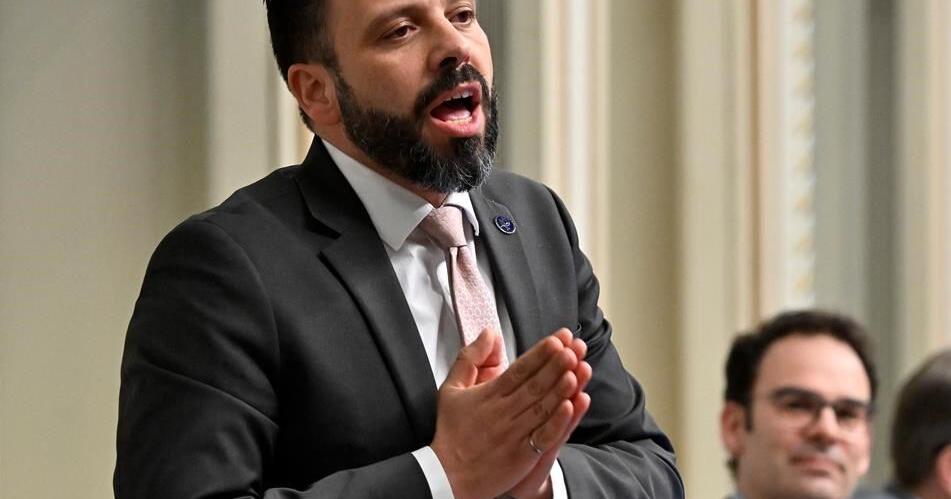
MONTREAL – A Quebec political party has voted to support one of its members facing backlash for saying that racialized people are regularly disparaged at the provincial legislature.
Québec solidaire members adopted an emergency resolution at the party’s convention late Sunday condemning the hate directed at Haroun Bouazzi, without endorsing his comments.
Bouazzi, who represents a Montreal riding, had told a community group that he hears comments every day at the legislature that portray North African, Muslim, Black or Indigenous people as the “other,” and that paint their cultures are dangerous or inferior.
Other political parties have said Bouazzi’s remarks labelled elected officials as racists, and the co-leaders of his own party had rebuked him for his “clumsy and exaggerated” comments.
Bouazzi, who has said he never intended to describe his colleagues as racist, thanked his party for their support and for their commitment to the fight against systemic racism.
Party co-spokesperson Gabriel Nadeau-Dubois said after Sunday’s closed-door debate that he considers the matter to be closed.
This report by The Canadian Press was first published Nov. 18, 2024.
The Canadian Press. All rights reserved.
News
Virginia Democrats advance efforts to protect abortion, voting rights, marriage equality

RICHMOND, Va. (AP) — Democrats who control both chambers of the Virginia legislature are hoping to make good on promises made on the campaign trail, including becoming the first Southern state to expand constitutional protections for abortion access.
The House Privileges and Elections Committee advanced three proposed constitutional amendments Wednesday, including a measure to protect reproductive rights. Its members also discussed measures to repeal a now-defunct state constitutional ban on same-sex marriage and ways to revise Virginia’s process to restore voting rights for people who served time for felony crimes.
“This meeting was an important next step considering the moment in history we find ourselves in,” Democratic Del. Cia Price, the committee chair, said during a news conference. “We have urgent threats to our freedoms that could impact constituents in all of the districts we serve.”
The at-times raucous meeting will pave the way for the House and Senate to take up the resolutions early next year after lawmakers tabled the measures last January. Democrats previously said the move was standard practice, given that amendments are typically introduced in odd-numbered years. But Republican Minority Leader Todd Gilbert said Wednesday the committee should not have delved into the amendments before next year’s legislative session. He said the resolutions, particularly the abortion amendment, need further vetting.
“No one who is still serving remembers it being done in this way ever,” Gilbert said after the meeting. “Certainly not for something this important. This is as big and weighty an issue as it gets.”
The Democrats’ legislative lineup comes after Republican Governor Glenn Youngkin, to the dismay of voting-rights advocates, rolled back a process to restore people’s civil rights after they completed sentences for felonies. Virginia is the only state that permanently bans anyone convicted of a felony from voting unless a governor restores their rights.
“This amendment creates a process that is bounded by transparent rules and criteria that will apply to everybody — it’s not left to the discretion of a single individual,” Del. Elizabeth Bennett-Parker, the patron of the voting rights resolution, which passed along party lines, said at the news conference.
Though Democrats have sparred with the governor over their legislative agenda, constitutional amendments put forth by lawmakers do not require his signature, allowing the Democrat-led House and Senate to bypass Youngkin’s blessing.
Instead, the General Assembly must pass proposed amendments twice in at least two years, with a legislative election sandwiched between each statehouse session. After that, the public can vote by referendum on the issues. The cumbersome process will likely hinge upon the success of all three amendments on Democrats’ ability to preserve their edge in the House and Senate, where they hold razor-thin majorities.
It’s not the first time lawmakers have attempted to champion the three amendments. Republicans in a House subcommittee killed a constitutional amendment to restore voting rights in 2022, a year after the measure passed in a Democrat-led House. The same subcommittee also struck down legislation supporting a constitutional amendment to repeal an amendment from 2006 banning marriage equality.
On Wednesday, a bipartisan group of lawmakers voted 16-5 in favor of legislation protecting same-sex marriage, with four Republicans supporting the resolution.
“To say the least, voters enacted this (amendment) in 2006, and we have had 100,000 voters a year become of voting age since then,” said Del. Mark Sickles, who sponsored the amendment as one of the first openly gay men serving in the General Assembly. “Many people have changed their opinions of this as the years have passed.”
A constitutional amendment protecting abortion previously passed the Senate in 2023 but died in a Republican-led House. On Wednesday, the amendment passed on party lines.
If successful, the resolution proposed by House Majority Leader Charniele Herring would be part of a growing trend of reproductive rights-related ballot questions given to voters. Since 2022, 18 questions have gone before voters across the U.S., and they have sided with abortion rights advocates 14 times.
The voters have approved constitutional amendments ensuring the right to abortion until fetal viability in nine states: Arizona, California, Colorado, Maryland, Michigan, Missouri, Montana, Ohio and Vermont. Voters also passed a right-to-abortion measure in Nevada in 2024, but it must be passed again in 2026 to be added to the state constitution.
As lawmakers debated the measure, roughly 18 members spoke. Mercedes Perkins, at 38 weeks pregnant, described the importance of women making decisions about their own bodies. Rhea Simon, another Virginia resident, anecdotally described how reproductive health care shaped her life.
Then all at once, more than 50 people lined up to speak against the abortion amendment.
“Let’s do the compassionate thing and care for mothers and all unborn children,” resident Sheila Furey said.
The audience gave a collective “Amen,” followed by a round of applause.
___
Associated Press writer Geoff Mulvihill in Cherry Hill, New Jersey, contributed to this report.
___
Olivia Diaz is a corps member for The Associated Press/Report for America Statehouse News Initiative.
News
Trump chooses anti-vaccine activist Robert F. Kennedy Jr. as health secretary
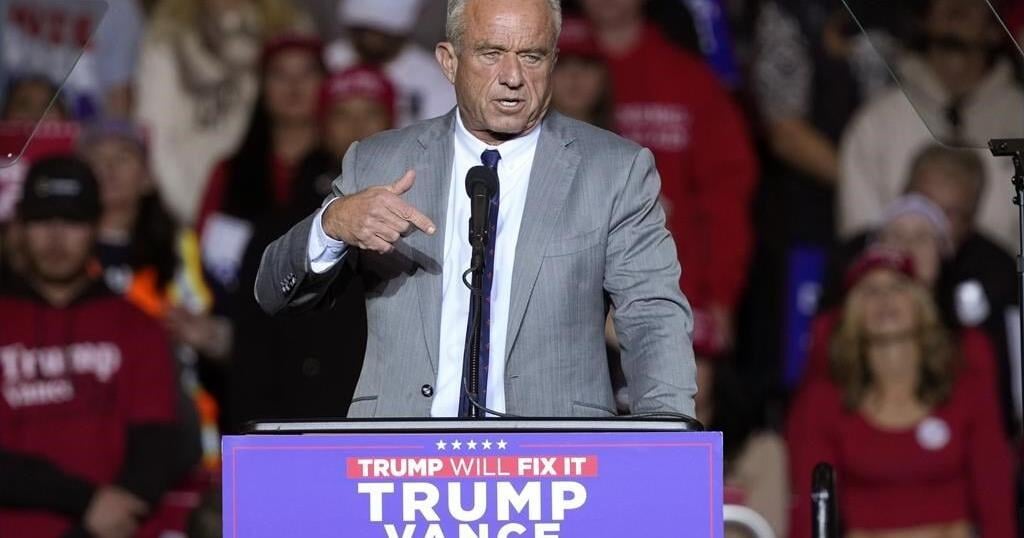
NEW YORK (AP) — President-elect Donald Trump says he will nominate anti-vaccine activist Robert F. Kennedy Jr. to lead the Department of Health and Human Services, putting him in charge of a massive agency that oversees everything from drug, vaccine and food safety to medical research and the social safety net programs Medicare and Medicaid.
“For too long, Americans have been crushed by the industrial food complex and drug companies who have engaged in deception, misinformation, and disinformation when it comes to Public Health,” Trump said in a post on his Truth Social site announcing the appointment. Kennedy, he said, would “Make America Great and Healthy Again!”
Kennedy, a former Democrat who ran as an independent in this year’s presidential race, abandoned his bid after striking a deal to give Trump his endorsement with a promise to have a role in health policy in the administration.
He and Trump have since become good friends, with Kennedy frequently receiving loud applause at Trump’s rallies.
The expected appointment was first reported by Politico Thursday.
A longtime vaccine skeptic, Kennedy is an attorney who has built a loyal following over several decades of people who admire his lawsuits against major pesticide and pharmaceutical companies. He has pushed for tighter regulations around the ingredients in foods.
With the Trump campaign, he worked to shore up support among young mothers in particular, with his message of making food healthier in the U.S., promising to model regulations imposed in Europe. In a nod to Trump’s original campaign slogan, he named the effort “Make America Healthy Again.”
It remains unclear how that will square with Trump’s history of deregulation of big industries, including food. Trump pushed for fewer inspections of the meat industry, for example.
Kennedy’s stance on vaccines has also made him a controversial figure among Democrats and some Republicans, raising question about his ability to get confirmed, even in a GOP-controlled Senate. Kennedy has espoused misinformation around the safety of vaccines, including pushing a totally discredited theory that childhood vaccines cause autism.
He also has said he would recommend removing fluoride from drinking water. The addition of the material has been cited as leading to improved dental health.
HHS has more than 80,000 employees across the country. It houses the Food and Drug Administration, the Centers for Disease Control and Prevention, the Medicare and Medicaid programs and the National Institutes of Health.
Kennedy’s anti-vaccine nonprofit group, Children’s Health Defense, currently has a lawsuit pending against a number of news organizations, among them The Associated Press, accusing them of violating antitrust laws by taking action to identify misinformation, including about COVID-19 and COVID-19 vaccines. Kennedy took leave from the group when he announced his run for president but is listed as one of its attorneys in the lawsuit.
__ Seitz reported from Washington.
The Canadian Press. All rights reserved.
-

 News20 hours ago
News20 hours agoTrial to begin in human smuggling case after freezing deaths of Indian family at Canada-US border
-

 News9 hours ago
News9 hours agoHealth workers go on trial in Turkey accused of private care scheme linked to 10 infant deaths
-

 News20 hours ago
News20 hours agoWisconsin Supreme Court hearing case targeting swing state’s top elections administrator
-

 News9 hours ago
News9 hours ago6 monkeys are still on the loose from a South Carolina compound after dozens escaped
-

 News9 hours ago
News9 hours agoA look at Rafael Nadal’s 22 Grand Slam titles as he prepares to retire after the Davis Cup
-

 Business11 hours ago
Business11 hours agoJob Seekers’ Trinity Focus, Anger and Evidence
-

 Business10 hours ago
Business10 hours agoWhich Candidate Would You Hire? A or B?
-

 News7 hours ago
News7 hours agoCBP Announces New Hours for Border Crossing Locations


